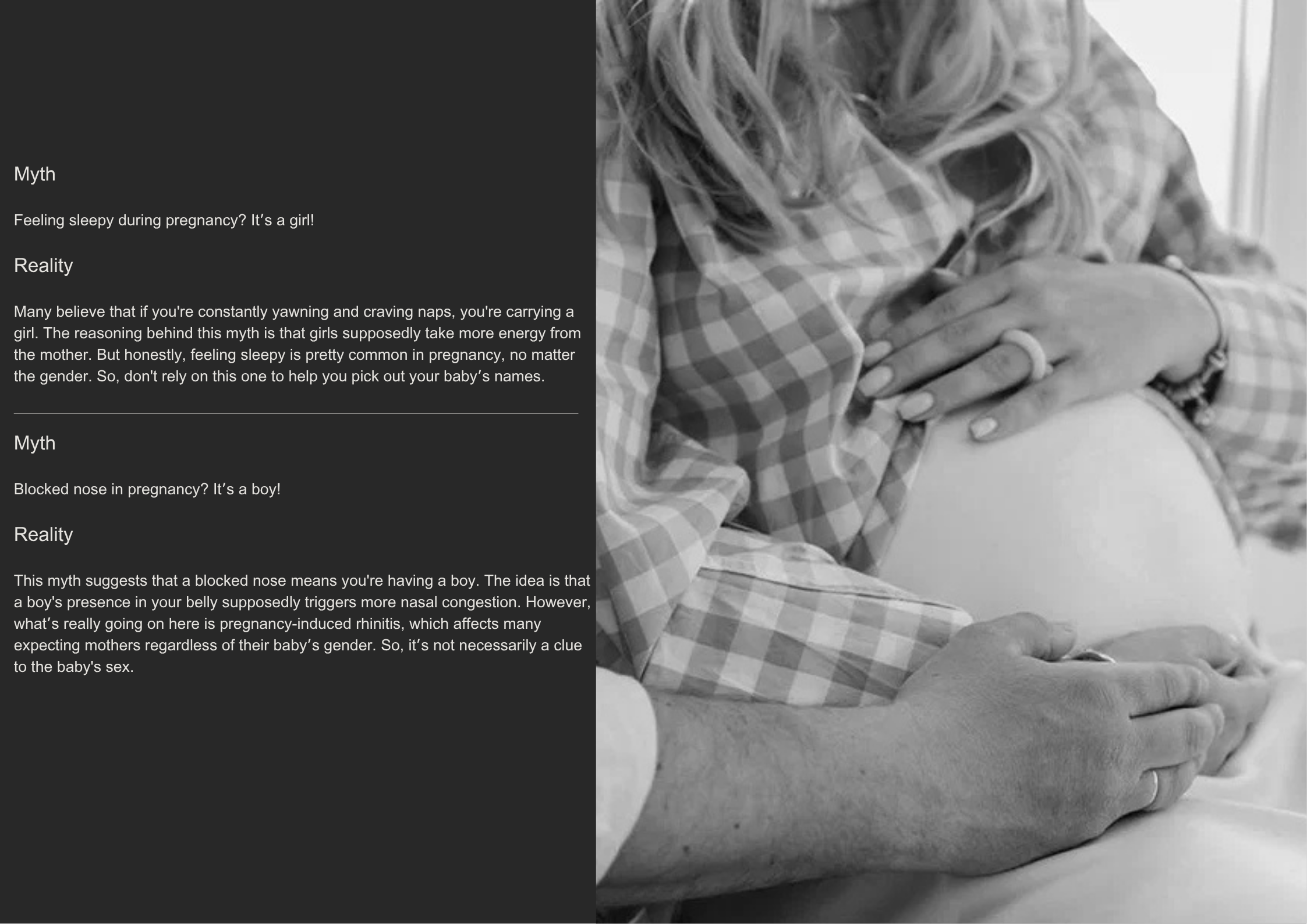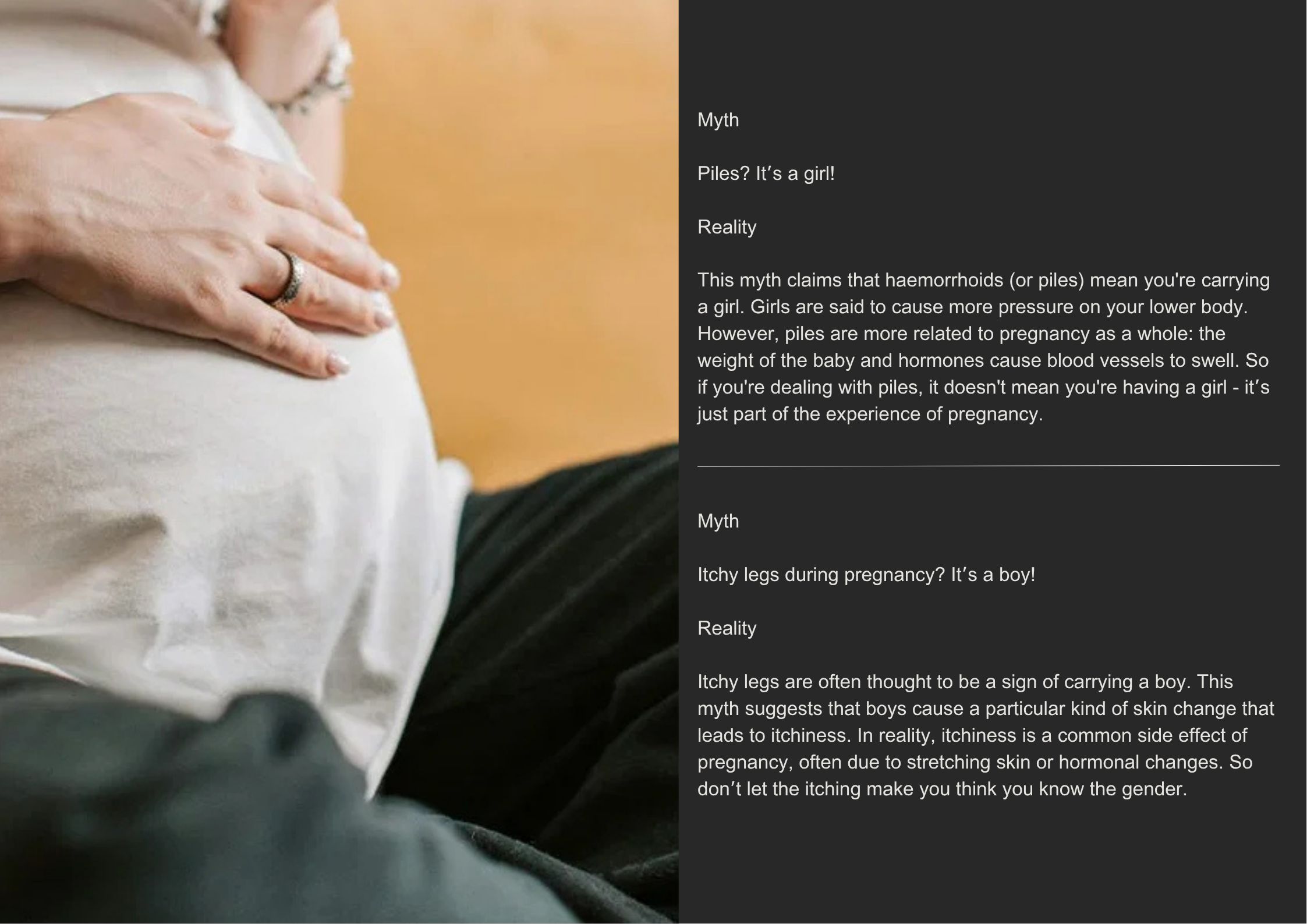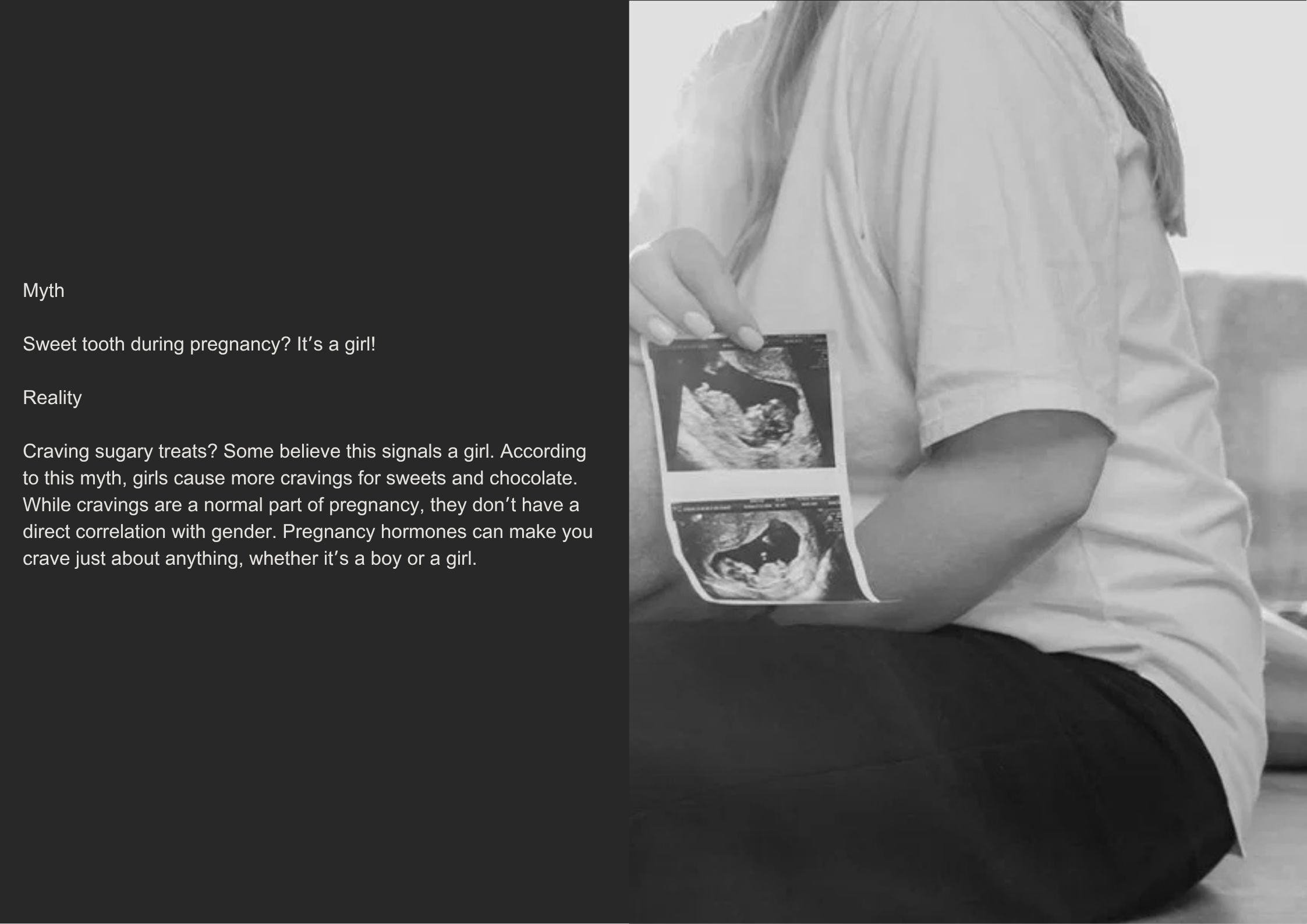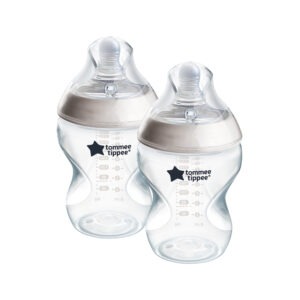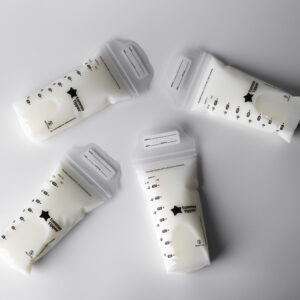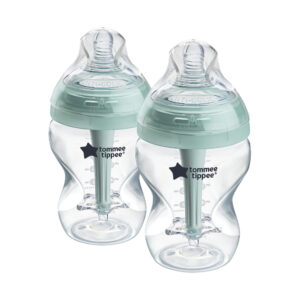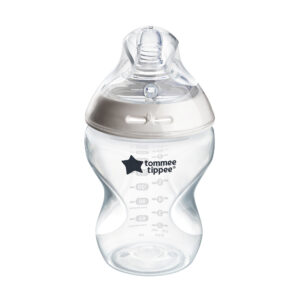Pregnancy

Debunking gender prediction myths
Debunking gender prediction myths

Pregnancy is full of surprises, and so are the myths surrounding baby gender predictions. From cravings to morning sickness, people have long believed that certain symptoms can reveal if you’re having a boy or a girl.
Let’s take a look at some of the most popular myths and see if they hold up.
What are gender prediction myths
Gender prediction myths are quirky fables that claim to reveal whether you’re having a boy or a girl based on things like cravings, mood swings or even how you’re carrying your baby. While these myths are fun, they’re usually not backed by science (but they’re still fun to read about).
Where do these myths come from?
Gender prediction myths stem from old wives’ tales or superstitions that claim to be able to predict the sex of a baby based on various signs, symptoms or behaviours during pregnancy. These myths have been passed down through generations long before ultrasounds and blood tests were invented, so do they hold any truth?
Let’s get into it!
Myth
Gas problems? It’s a girl!
Reality
A common myth says that if you’re experiencing extra gas, it’s likely a girl. The theory goes that girls are responsible for causing more bloating and gas during pregnancy. In reality, gas and bloating are simply part of the pregnancy package due to hormones relaxing your digestive muscles. So, it’s more about the pregnancy process than the baby’s gender!
Myth
Insomnia in early pregnancy? It’s a boy!
Reality
Some say insomnia during pregnancy signals that you’re having a boy. The idea is that boys cause more restlessness and disturbed sleep patterns. But in reality, insomnia can occur in any pregnancy, especially in the early stages when your body is adjusting to changes. Hormones are the main culprit, not the baby’s sex.
Myth
Swollen legs during pregnancy? It’s a girl!
Reality
Some believe that swelling in the legs indicates a girl is on the way. The myth suggests that girls cause more fluid retention. However, swelling in pregnancy is pretty common regardless of the baby’s gender, and it happens due to the growing uterus pressing on blood vessels, causing poor circulation. So, this myth doesn’t hold much weight when it comes to predicting gender.
Myth
Nosebleeds in pregnancy? It’s a boy!
Reality
Here’s one that says if you’re dealing with frequent nosebleeds, you’re expecting a boy. The idea is that boys supposedly trigger more nosebleeds due to their higher testosterone levels. But guess what? Nosebleeds are typically caused by hormonal changes during pregnancy, which affect the blood vessels in your nose. So, no need to decide on boy names just yet!
At the end of the day, gender prediction myths are mainly just for fun and a little extra excitement during your pregnancy. Don’t take them too seriously – whether they’re spot on or completely off the mark, it’s all part of the adventure.
Sources- Article by Kate
- Tiredness & Sleep Problems - NHS
- Medical Management of rhinitis in pregnancy -ScienceDirect
- Gas Pain during pregnancy: Causes by trimester & Treatment
- Hemorrhoids in Pregnancy - PMC
- Nosebleeds in pregnancy - NHS
- Swollen ankels, feet & fingers in pregnancy - NHS
- Six popular types of food on pregnancy cravings lists - The Mother Baby Centre
- Article by Kate
- Tiredness & Sleep Problems - NHS
- Medical Management of rhinitis in pregnancy -ScienceDirect
- Gas Pain during pregnancy: Causes by trimester & Treatment
- Hemorrhoids in Pregnancy - PMC
- Nosebleeds in pregnancy - NHS
- Swollen ankels, feet & fingers in pregnancy - NHS
- Six popular types of food on pregnancy cravings lists - The Mother Baby Centre










